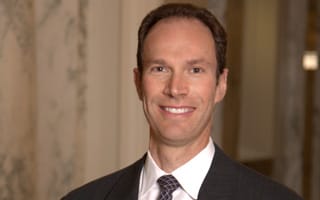


Proponents of Medicaid expansion believe that the November election settled the issue of expansion and that the Legislature now simply needs to fund it. Recently, Jim Jones took that one step further by both attacking the Idaho Freedom Foundation and showing his ignorance of our form of government.
Judging by Jones’ comments, you might think IFF’s legal challenge is a novelty. It’s not.
Recall Idaho’s Constitutional Amendment 2, the 2006 measure that banned same-sex marriage, which passed by 63 percent of the vote. A federal judge eventually declared it unconstitutional. Legal challenges are part of our system. Jones was quick to fault IFF’s suit, suggested it was flawed without citing why, and attempted to signal to the Idaho Supreme Court, “the challenge is bound to fail (although I have no inside information as to how the Supreme Court might rule).”
Consider the following points.
Obamacare is constitutionally dubious based on the rationale given in the 5 to 4, NFIB vs. Sebelius U.S. Supreme Court ruling that considered the individual mandate an extension of Congress’s taxing power. That decision allowed states to opt in or out of Medicaid expansion. Recently, a federal judge in a Texas case declared Obamacare completely unconstitutional.
Proposition 2 raises serious state constitutional issues. These issues are ripe for review. The ballot language binds Idaho to changes that federal officials and Congress might make regarding personal income limits and eligibility. Voters were never told about this unconstitutional delegation of legislative authority. National Democrats could move to government-mandated, taxpayer-funded healthcare by simply lifting the income limit to cover virtually everybody.
Let’s step back from the legal arguments against Proposition 2 and tackle some of the other issues Jones raised. To begin, we were told that the election was a victory for struggling Idahoans and there was, “a lengthy campaign to hear and consider both sides of the issue.”
Both are false.
The Fairness Project, a D.C.-based liberal interest group pumped more than $500,000 into the state to pay signature-gathers to put Prop 2 on the ballot.
That’s just the beginning.
Idahoans for Healthcare, the political action committee (PAC) that funded pro-Prop 2 messages, spent $1.57 million during the election. The PAC was largely funded by Big Medicine, e.g. large medical providers who will get about $500 million in expansion payments annually. That’s a nice return on investment.
Contrast that with the opposition PAC, Work Not Obamacare, which spent just $60,000 and had no support from big money interest groups.
The pro-Prop 2 PAC outspent the con-Prop 2 PAC by more than 26 to 1!
Where is Jones on this? Why isn’t he concerned with money influencing the Prop 2 election? Jones tries to convince us that the campaign was fair and balanced; would he say that if the spending and outcome had been reversed?
Finally, Jones states, “the work requirements are likely violative of federal law.” That’s false. States can apply for work requirements via a federal waiver and this has been encouraged by the Trump administration. Just because one liberal federal judge threw them out in Kentucky does not cast all work requirements out.
Medicaid expansion, a cornerstone of Obamacare, will further tether Idaho’s healthcare system to the whims of federal bureaucrats and future congressional action. Idaho voters will have no input before any changes are made – Idahoans will be on the hook if changes cost state taxpayers more money. These constitutional issues of delegation do need to be reviewed, despite Jim Jones’ attempt to muddy the waters.


